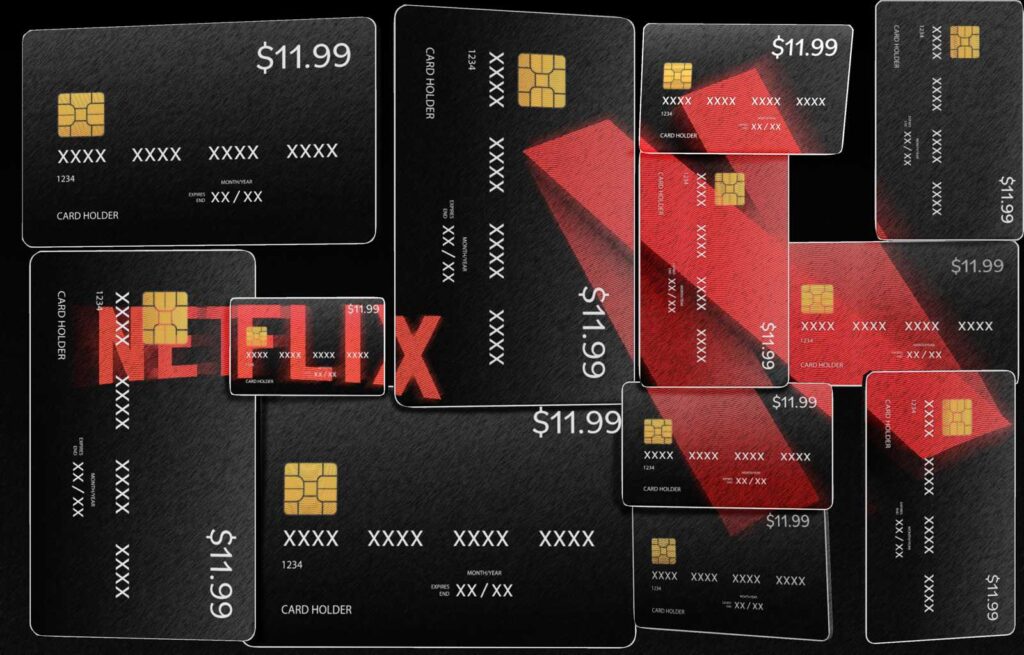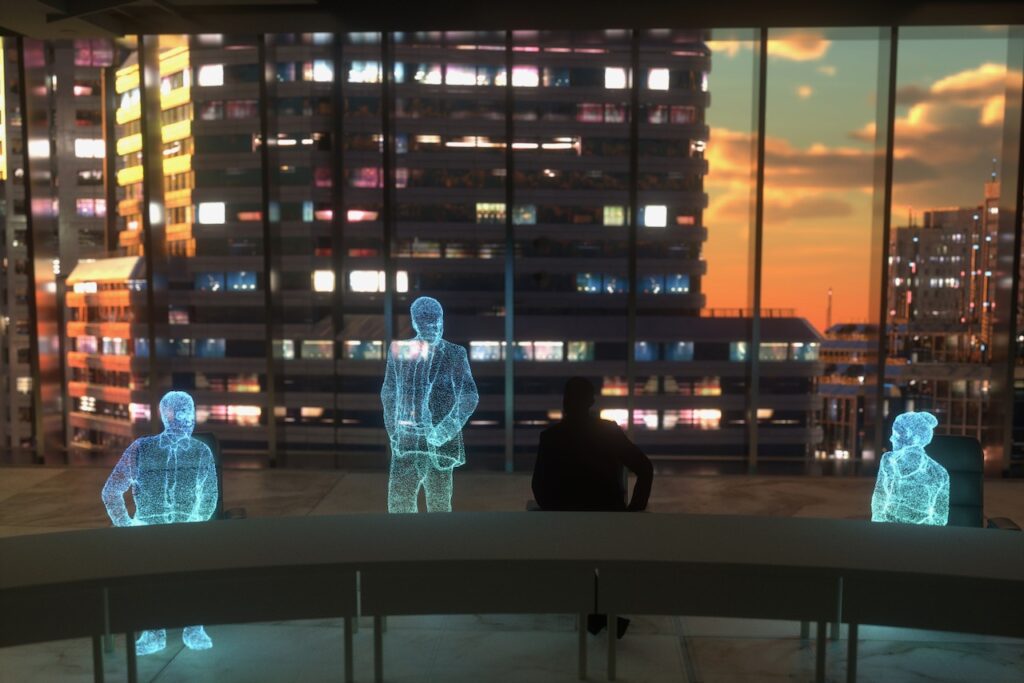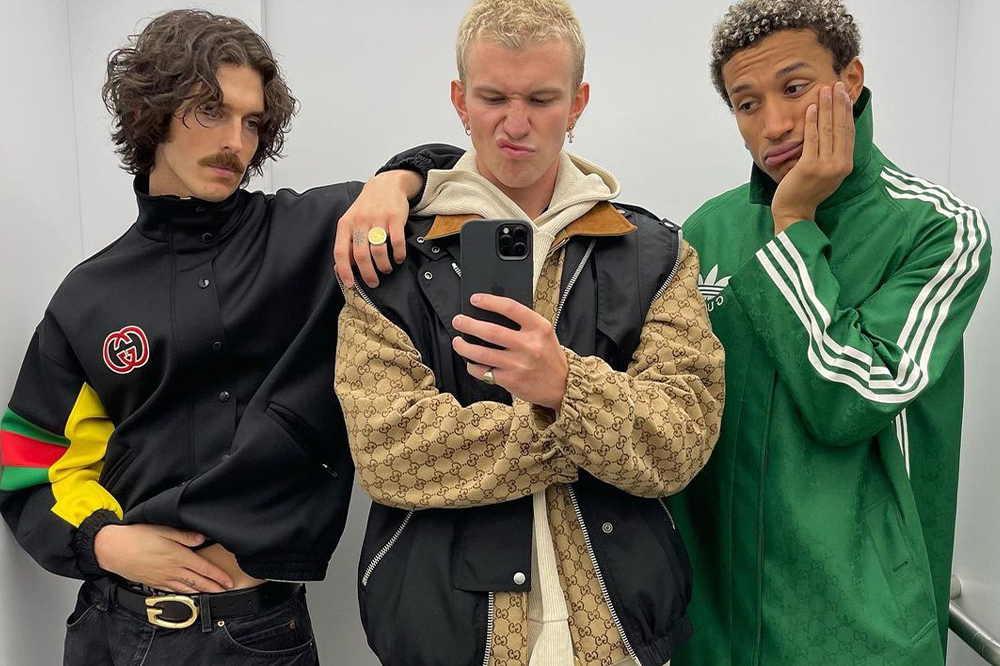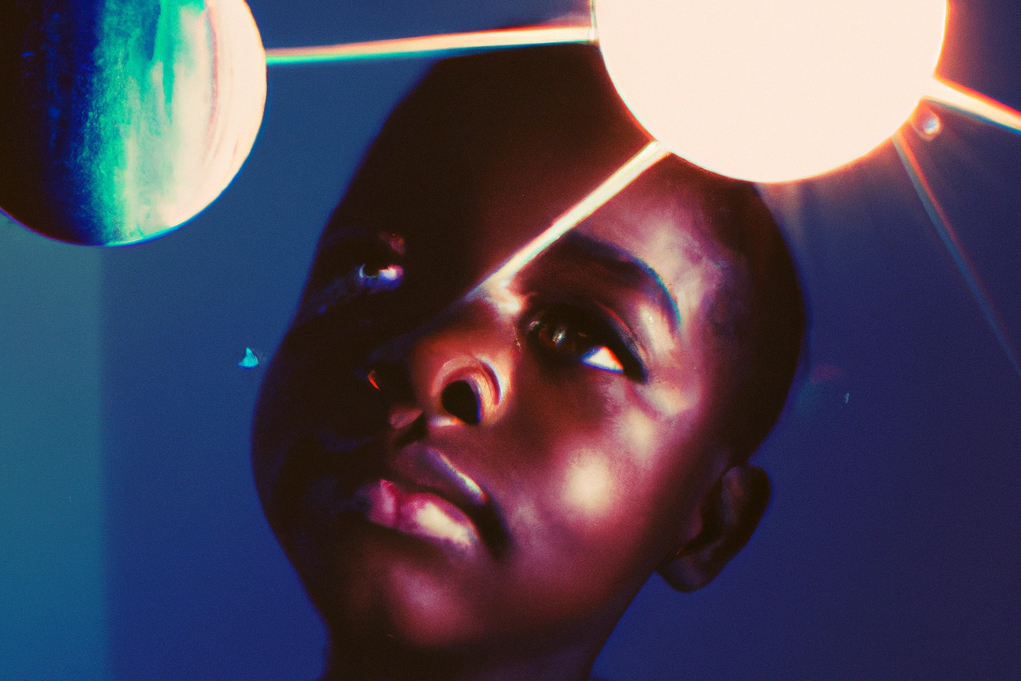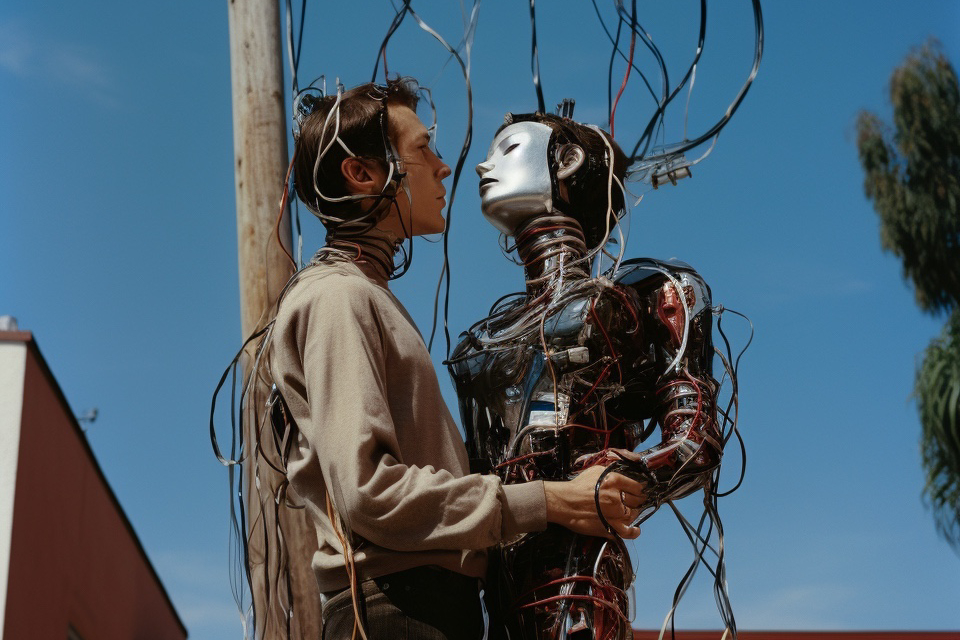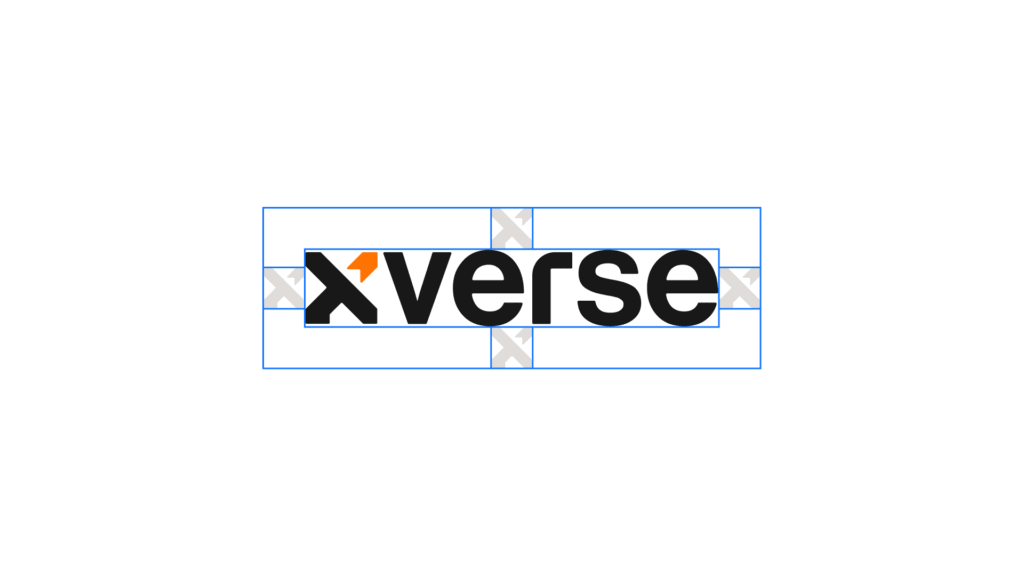Listen up. A new step in our relationship with social media platforms might be emerging. We are all drowning in content, which isn’t surprising, as 95 million (!!) photos and videos are uploaded daily on IG alone. Think about how often you catch yourself scrolling through an absolutely endless loop of content.
Our global online content consumption didn’t simply grow, it doubled in 2020. Throughout the pandemic, our main source of social interaction shifted to taking place online, because where else would we be? We sought distraction from the chaos. It is estimated that 90% of the 120 zetabytes (120,000,000,000,000,000,000,000 byte!) of data in the world, was generated in the last TWO years alone.
It was at that right moment, that content creators emerged as our beacons of entertainment, offering a much-needed escape from reality. Platforms helped to ease our situation. Or – one could argue – they saw a great opportunity for increasing their revenue. How so? Smarter and smarter algorithms are keeping us on the apps, and marketers spent 50% more on Instagram advertising. They basically did everything to ensure we were hooked.
Let’s take a big step back to the dinosaur age of the internet. 1998, to be precise. Google and Yahoo were pioneering by helping us find the information we were looking for. If the search engine did not exist, you would not be reading this right now. In its early years, Google served as a middleman for those who had things to share and those looking for answers.
But why Google? How did they take the lead? Google emerged as a search engine powerhouse, serving up more accurate results than any search engines that preceded it in the market. With ongoing tinkering and fine-tuning, their algorithm has been delivering the utmost relevant results. By starting off strong and progressively improving, Google quickly arose to become the internet’s ultimate go-to search engine within a few years. It’s laid the foundation for the modern tech boom, attracting billions of users by facilitating their needs.
The rise of the Internet then paved the way for communication online. Blogging played a crucial role in introducing the era of social media. The concept of an individual being able to connect to the online world and freely express their thoughts, emotions and activities, opened people’s eyes to the profound impact of the internet. From there, the first platforms like Six Degrees and Friendster allowed people to sign up with their email addresses, make individual profiles, and add friends to their personal network. That’s how Google gave way to second-wave platforms such as Facebook and Instagram.
Let’s talk Web 2.0
In the realm of Web 2.0 websites, users are getting the chance to engage and cooperate with one another through lively social media dialogue. They become active participants, contributing as creators of user-generated content within a virtual community. This stands in stark contrast to the earlier era of Web 1.0 websites, where individuals were confined to a more passive role of merely consuming content. Instead of information gathering, interaction and collaboration were the goal.
Think of Facebook, MySpace, and LinkedIn as prime examples of platforms that harnessed the power of Web 2.0. They realized the potential of creating solutions for our increasingly interconnected society. Via social media platforms, we found ourselves reconnecting with our old friends and people we hadn’t seen in ages. Remember how thrilling that was?
Now, Web 2.0 was all about participation and connection. These apps were built upon the foundations laid by initial platforms like Google. The search engine played a crucial role in facilitating the discovery of websites, content, and information. Thanks to the advertising revenue generated on Google, our social media networks have been able to thrive and grow. They had the goal to have as many users on there as possible, and have them stay on the platform. Think about how hooked they got us on there. It’s all about attention – a.k.a. being able to sell our screentime to advertisers. As a result, the power shifted towards the companies developing these social apps, as they became the ones attracting billions of users and generating trillions of dollars. See a pattern?
Platforms became the norm, and our go-to for staying informed about what’s going on. But remember the early days of Facebook, Twitter, and Instagram? We had our friends on our feed, and hashtags to explore other content, instead of algorithms deciding what we want to see. When algorithms became smarter, they started shaping our experience, which some of us find pretty annoying. While they helped us personalize our web experience and build communities, we kept encountering the same problem: Too much information, and too little agency. It’s as if we’re lost in a sea of content that is imposed upon us. Someone break it down, please.
And here’s where content creators come into play.
As information overflows from various platforms, we crave a filter curating content for us. Just not an algorithm. It’s all about personal connection and trust: When we find a creator whose content resonates with us, we develop a sense of connection. These individuals offer a human touch that algorithms and corporations simply can’t replicate. They have stepped in to fill the void, becoming our trusted filters in all the digital noise.
Moreover, it’s about power. We prefer to have control over what we consume and don’t want to rely on the algorithm to introduce us to new content. And let’s not forget creativity here. Creators bring their individual creativity and style to their work, which can be a refreshing departure from algorithmically generated content. Community and authenticity are characteristics the algorithms simply do not offer.

Think about Lele Pons starting off with vines, who’s one of the most successful creators within the entertainment niche by now. Charli D’Amelio skyrocketed on TikTok and now has a net worth of more than $20 million. Or YouTuber and philanthropist Mr. Beast, who had already been offered $1B for his YT channel. On the base of the platforms, these creators are now the ones attracting billions of users and revenue.
The creators’ ability to connect with us more personally has made them an integral part of our digital lives – and they took over the power position that once belonged to the corporations. Their credibility within a niche, engaging content formats, active engagement with followers and a consistent schedule of posting are all aspects that tie us to them. Our use of the platform is not about the platform, but rather about the creators whose content we consume.
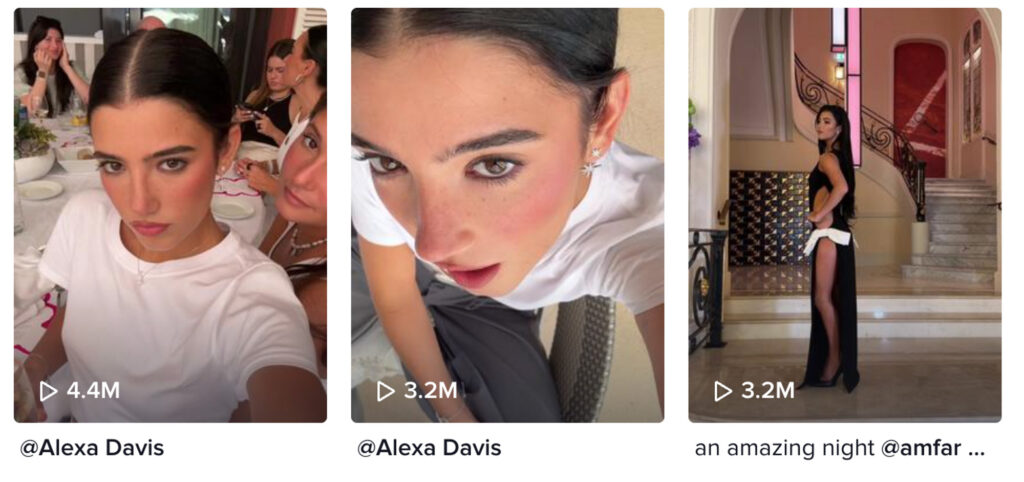
Now, what does this mean for us?
As we navigate the ever-changing digital landscape, our focus undergoes yet another shift. In the early days, search engines dominated the scene, followed by the spotlight on community-driven platforms. But now, as we embrace the concept of Web 3.0, the individual takes center stage. Think about the decentralized web. It dares to reimagine the very structure of the Internet itself. The decentralized web challenges us to rethink the foundation of the internet. Rather than relying on centralized data hosting services, this innovative approach proposes using peer-to-peer infrastructure to reshape the digital ecosystem.
We witness a remarkable shift in how Millennials and Gen Z cultivate relationships, and this transformation holds profound implications for their trust dynamics and online behaviors. Surprisingly, a staggering 62% of these generations are willing to pay extra for personalized experiences, surpassing any preceding cohort. In light of this, it becomes paramount for brands to reassess their engagement strategies, moving beyond traditional marketing channels and regulations. By establishing a genuine online presence, businesses can seize the opportunity to collaborate and harness the immense potential of creator communities, which deliver more authentic experiences.
The future is niche oriented
We already experience the simultaneous building of niche communities on social media platforms that dictate a lifestyle. Think about sub-communities like ASMR, K-pop, and all the fashion-cores arising. Do you notice your own bubble when scrolling through social media? We can expect an extension of these hyper-realities in the next wave.
In emerging Web 3.0, which is backed by decentralized autonomous organizations (DAOs), the power belongs to the people. Wherever our interests lie, a content creator will be there to cater to it. It’s authenticity, virality, relatability, and accessibility of their content that truly adds value and relevance to our communities and niche interests.
Let’s take a look at a prime example of this evolving landscape.
Niche, a revolutionary decentralized online marketplace and social media platform, embodies this rising desire for a decentralized web. Unlike traditional platforms, Niche places user ownership, data privacy, and community-driven content at the forefront. Users are actively seeking platforms that nurture authentic communities built on shared interests and values. The newcomer recognizes the immense potential within communities of like-minded individuals, whether it’s centered around niche interests like conscious cooking or hardcore gardening.
However, it’s not a simple task to carve out a space in an already saturated market dominated by global giants like Facebook, Instagram, and TikTok, with their billions of users. The initial challenge for Niche lies in building a robust user base and establishing unique forms of value that set it apart. The established platforms have already solidified their key differentiators, such as TikTok’s short-form entertainment and Instagram’s large communities and commerce. To thrive, Niche must create a similar network effect.
In a recent interview with Lex Fridman, Silicon Valley expert Chamath Palihapitiya confirms our train of thought, stating that content creators are now atomizing what the apps have done: Providing personal news feeds, as well as own curated communities. How we consume information is through Individual people that we can humanize and understand, they are the new filter.
In Conclusion: Find your niche and start creating
With platforms undergoing a significant shift towards the hands of creators, there has never been a better time to make your mark. In a world where content is omnipresent, standing out becomes crucial. By sharing your unique voice, perspective, and expertise, you have the power to shape the digital landscape and make a meaningful impact.
The demand for personalized filters and guidance has never been greater. People crave authenticity and relatability, seeking someone they can trust, an individual who understands their needs and interests. As a content creator, you can fill this void by becoming a trusted source within your niche. Web 3.0 brings with it an era where distinct communities are on the forefront. It’s time to part ways with big company algorithms.
The world is waiting to hear your story. Start creating it.

